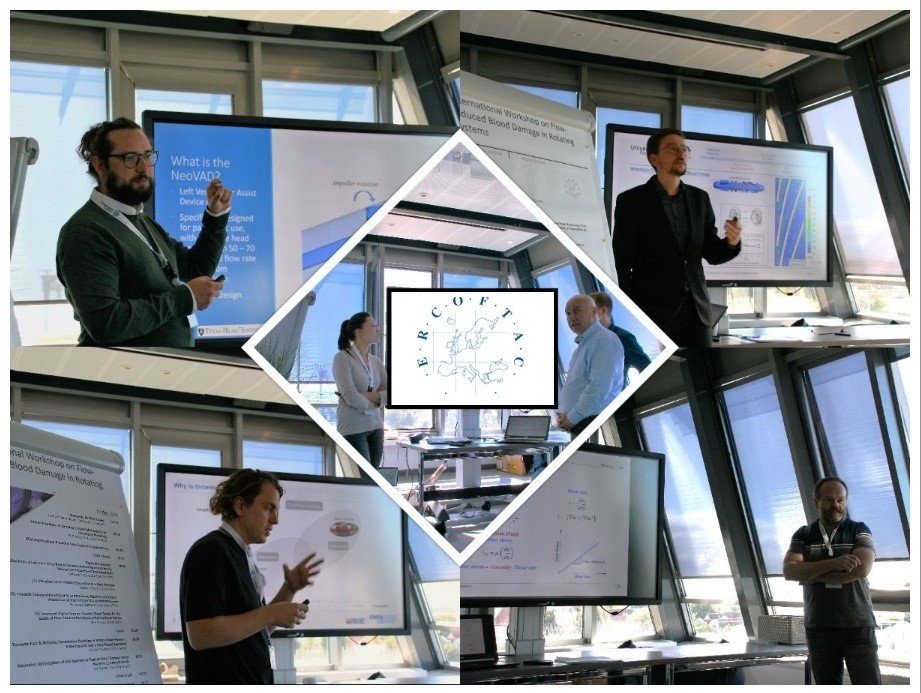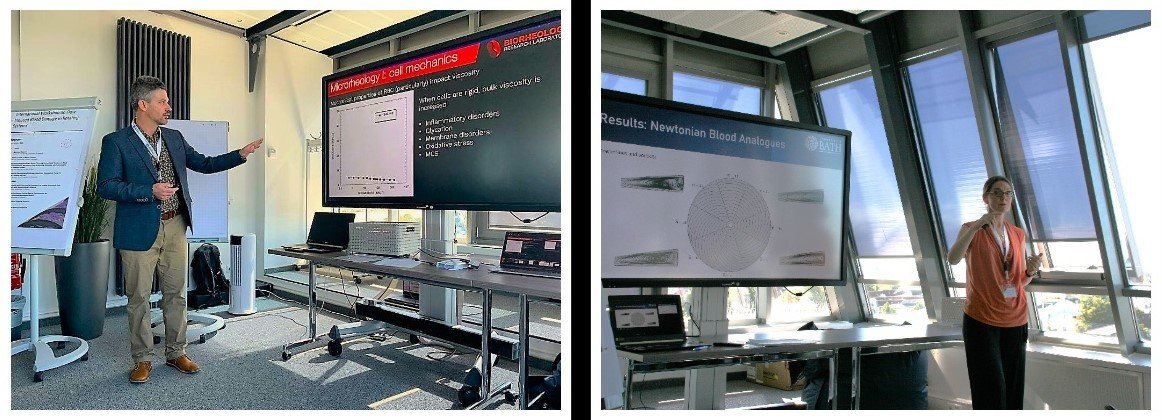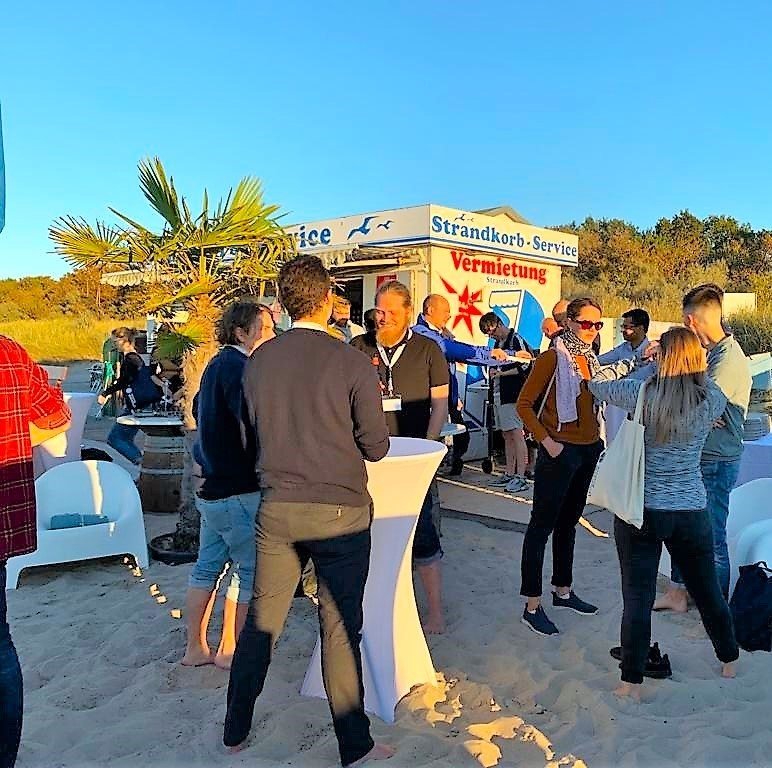The 2nd International Workshop on Flow-Induced Blood Damage in Rotating Systems (BDW2022) has been a great success.
It took place on the 1st and 2nd of September 2022 in Rostock-Warnemünde, Germany.

Impressions of the BDW2022
After the first edition in 2019 and two years of pandemic, the workshop provided again a productive discussion platform for the research community working on flow-induced blood trauma. Attendance doubled from the first workshop, with participants from Australia, the United Kingdom, Czech Republic, Sweden, Italy, and Germany. The participants from universities represented the fields of biorheology, physics of cell damage and flow-induced stresses on cells in rotary blood pumps, ventricular assist devices (VAD) and extracorporeal membrane oxygenators (ECMO).
Highlights of this year's workshop included presentations by Prof. Michael Simmonds, Griffith University, Australia, and Dr. Katharine Fraser, University of Bath, UK, both of whom are well known in their fields of research. To emphasize the workshop’s character, there were also discussion sessions on “ongoing projects“ as well as on “new test cases for numerical prediction of hemolysis (red blood cell damage)”. During these rounds, it was agreed to develop new test cases and evaluate them in following workshops.
Furthermore, the industry partners gave a very interesting insight into the problems and challenges that blood damage poses for their systems. The following companies took part in the workshop: enmodes GmbH (Germany), Berlin Heart GmbH (Germany), Scandinavian Real Heart (Sweden) and Getinge AB (Sweden).
Faisal Zaman (Scandinavian Real Heart) held a presentation on “in-vitro hemolysis testing of pulsatile pumps”, and Dr. Adrian Wisniewski (Berlin Heart GmbH) on: “Influence of the pulsatile flow of an axial blood pump on the radial tip vortex”.

Michael Simmonds (left) and Katharine Fraser (right) provided an in-depth look
at the workshop’s topic from an academic perspective.

Adrian Wisniewski (left) and Faisal Zaman (right) spoke about the workshop’s topic
from the industry perspective.
A special feature of our two-day workshop was the specialization on flow-induced blood damage. At classic conferences, this topic is often limited to one session with a small time frame of a few minutes per presentation. In contrast, the presentations in this workshop were designed to stimulate discussion in our research area with 20 minutes of lecture and 25 minutes of discussion.
We would like to sincerely thank ERCOFTAC for the sponsorship of the workshop and our SIG 37 and its coordinator Prof. Franck Nicoud for their great support.

Social program at the beach of Warnemünde.
Coordinators: Dr. Ben Torner; Prof. Dr. Hendrik Wurm
Co-organizers: Mario Hahne, Finn Knüppel, Candy Kleinvogel, Ruben Mett, Max Philipp,
Calvin Wolfgramm
